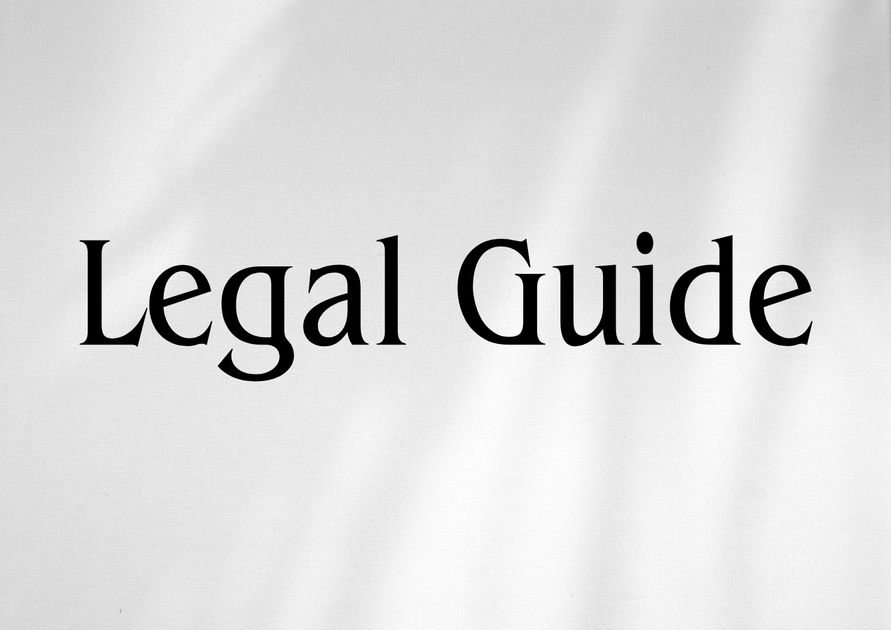Introduction: Navigating the Legal Landscape of Pilot Licensing and Training in the UAE
In recent years, the United Arab Emirates (UAE) has continued to position itself as a leading global aviation hub, underscored by robust growth in both commercial and private flight sectors. With the aviation industry central to the nation’s economic vision, ensuring the highest standards for pilot licensing and training has become a critical regulatory priority. This article provides a comprehensive, consultancy-grade analysis tailored for UAE-based businesses, HR managers, aviation executives, and legal practitioners. We focus on the current legal framework governing pilot licensing and training, especially in light of UAE law updates for 2025, along with practical guidance on compliance, risk mitigation, and strategic implementation.
The significance of this subject has become even more pronounced due to new federal decrees, safety mandates, and enhanced regulatory oversight introduced via the UAE General Civil Aviation Authority (GCAA) and referenced in Cabinet Resolutions and Ministerial Guidelines. As regulations evolve, aviation sector stakeholders face increased expectations to ensure compliance and proactively manage legal risks. Non-compliance—including outdated licensing, insufficient training records, or violations of recurrent training mandates—can result in sanctions, operational disruptions, and reputational harm.
This guide is designed to provide more than mere definitions or summaries. Instead, we deliver deep legal insights, direct reference to relevant federal decrees, practical illustrations, and actionable compliance strategies that organisations can confidently rely upon. We also offer comparisons between previous and current legal requirements, real-world case studies, and risk management recommendations to ensure your operations remain at the forefront of regulatory best practice in the UAE aviation sector.
Table of Contents
- UAE Aviation Legal Framework for Pilot Licensing
- Key Licensing Requirements for Pilots in the UAE
- Training and Recurrent Certification Updates
- Comparison: Previous Versus Current UAE Laws
- Organisational Obligations and Due Diligence
- Case Studies and Hypothetical Scenarios
- Risks of Non-Compliance and Consequences
- Effective Compliance Strategies for Organisations
- Future Trends: Legal Outlook and Best Practice Recommendations
- Conclusion: Key Takeaways and Forward Guidance
UAE Aviation Legal Framework for Pilot Licensing
1.1 Overview of Regulatory Authorities
The primary authority governing civil aviation, pilot licensing, and training within the UAE is the General Civil Aviation Authority (GCAA). Established under Federal Law No. 4 of 1996 (as amended), the GCAA is tasked with enforcing federal-level aviation laws, promulgating regulations, and ensuring international compliance with ICAO standards. The GCAA issues regulations including the UAE Civil Aviation Regulations (CARs), which serve as the baseline for pilot licensing, medical certification, training, and operations.
Significant directives with legal weight include:
- UAE Federal Law No. 20 of 1991 (Civil Aviation Law) – Foundation statute for civil aviation regulation.
- UAE GCAA Civil Aviation Regulations (CARs), Series 1 & 2 – Detailing specific licensing and operational requirements.
- Cabinet Resolution No. 21 of 2020 – Specific to safety and continued airworthiness management.
1.2 International Alignment and Bilateral Agreements
The UAE’s adherence to International Civil Aviation Organization (ICAO) Annex 1 – Personnel Licensing is enshrined in both national legislation and bilateral accords with key aviation markets. This ensures that pilot licenses issued or recognised in the UAE comply with global standards, facilitating international operations and aircraft registration. The GCAA frequently updates licensing requirements to maintain ICAO compliance, with significant amendments most recently implemented in late 2024 and early 2025.
Key Licensing Requirements for Pilots in the UAE
2.1 Types of Pilot Licenses Granted
The GCAA issues five principal categories of pilot licenses:
- Student Pilot License (SPL)
- Private Pilot License (PPL)
- Commercial Pilot License (CPL)
- Airline Transport Pilot License (ATPL)
- Multi-Crew Pilot License (MPL)
Each license comes with precise eligibility criteria covering age, medical fitness, theoretical knowledge, and flight experience. Licensing pathways are further detailed in CAR Part II (Personnel Licensing), regularly updated via GCAA Notices and Ministerial Circulars (see GCAA Circular 10/2024–2025).
2.2 Basic Eligibility Criteria
| License Type | Minimum Age | Medical Certificate | Theory Exams | Flight Hours |
|---|---|---|---|---|
| PPL | 17 | Class 2 | Yes | At least 45 |
| CPL | 18 | Class 1 | Yes | At least 200 |
| ATPL | 21 | Class 1 | Yes | At least 1500 |
| MPL | 18 | Class 1 | Yes (Integrated Stages) | Variable |
2.3 Key 2025 Updates: What’s New?
Effective January 2025, several new requirements have been introduced:
- Enhanced English Proficiency Testing – In alignment with ICAO Level 4+ mandates, stricter language assessment protocols and periodic retesting are now in force.
- Mandatory Upskilling for Advanced Aircraft – GCAA Circular 10/2024–2025 requires that pilots demonstrate proficiency in new-generation cockpit systems as part of type rating endorsements.
- Expanded Recognition of International Licenses – New bilateral recognition pathways under Cabinet Resolution No. 22 of 2024 streamline the conversion of select foreign licenses to UAE standards, subject to validation exams.
For all licensing pathways, the process is tightly regulated and digitally administered on the GCAA’s eService portal, ensuring traceability and robust audit trails.
Training and Recurrent Certification Updates
3.1 Approved Training Providers
Pilot training must be undertaken at GCAA-approved training organisations (ATOs), as set forth in GCAA CAR Part ORA (Organisation Requirements for Aircrew). All ATOs are subject to periodic compliance audits and minimum curriculum standards, as updated biannually by the Ministerial Guidelines for ATO Operation (latest: May 2024).
3.2 Core Curriculum and Assessment Protocols
- Theoretical Training – Aviation law, meteorology, navigation, principles of flight, and aircraft general knowledge.
- Practical Flight Training – Minimum flight hours in accordance with license type, performed in dual- and solo-command under qualified instructors.
- Simulator and Device-Based Training – Mandated for complex aircraft and ATPL/MPL pathways; device specifications regulated under GCAA CAR 2.8.
Periodic Skills Assessment: Recurrent skills checking is required at least once every six months for pilots operating under Air Operator Certificates (AOC), as stipulated in GCAA Safety Circulars and operational regulations (GCAA Circular OPS-SAF-2025/01).
3.3 Medical Certification and Renewal Cycles
- Class 1 Medical (Commercial/ATPL): Renew every 12 months (annually); after age 40, every 6 months (as per GCAA CAR Part MED).
- Class 2 Medical (Private): Renew every 24 months.
3.4 2025: Digital Record-Keeping and e-Licensing
New GCAA digital directives mandate secure electronic maintenance of pilot training records and licenses. Failure to maintain up-to-date digital records can trigger both operational penalties and administrative fines. This aligns with Cabinet Resolution No. 15 of 2023, focusing on digitization across essential licensing industries.
Comparison: Previous Versus Current UAE Laws
| Aspect | Pre-2024 Rules | 2025 Updated Provisions |
|---|---|---|
| English Proficiency Requirement | ICAO Level 4, assessed on entry only | ICAO Level 4+, periodic reassessment every 3 years mandatory |
| Training Delivery | Paper-based records permitted | Mandatory digital records and e-licensing |
| ATPL Theory Curriculum | Static content, minor updates | Enhanced, with compulsory modules on advanced avionics and cybersecurity |
| Foreign License Recognition | Case-by-case; limited reciprocity | Streamlined, as per new reciprocal agreements under Cabinet Resolution No. 22 of 2024 |
| ATOs Accreditation Renewal | Biennial | Annual, with strict additional compliance criteria |
Organisational Obligations and Due Diligence
4.1 Airline and ATO Responsibilities
The legal onus rests with both the pilot and the employing Air Operator Certificate (AOC) holder or Approved Training Organisation (ATO) to ensure that all personnel maintain valid, current licenses and training certifications. Specific obligations include:
- Active tracking of all pilot certification and renewal dates via secure digital systems;
- Conducting internal compliance audits compliant with safety management requirements (see GCAA CAR Part SMS);
- Maintaining immediate access to all records for inspection by GCAA or third-party auditors;
- Implementing corrective action protocols in case of training lapses.
4.2 HR and Employment Compliance
Recent Ministerial Guidelines (MoHRE, January 2025) require all HR managers and recruitment officers in aviation to verify not only the validity of licenses but also their endorsement with the correct aircraft types. This is now assessed as part of periodic UAE Labour Law (Federal Decree-Law No. 33 of 2021) workplace safety audits.
Case Studies and Hypothetical Scenarios
Case Study 1: Digital Record-Keeping Breach
An international airline operating out of Dubai failed to migrate its pilot license records to the mandated GCAA eLicensing system by the Q1 2025 deadline. During a random GCAA inspection, several paper-based records were identified as incomplete. As a result, the airline received a formal warning and a compliance remediation order under CAR 2.7, with a 30-day deadline to rectify. If not addressed, suspension of its AOC and financial penalties up to AED 250,000 could follow.
Case Study 2: Non-Recognition of Foreign License
A UAE-based private jet operator recruited a senior pilot holding a valid European EASA ATPL. However, failure to undergo the now-mandatory GCAA license validation exam (under Cabinet Resolution No. 22 of 2024) meant the pilot’s status was non-compliant. The operator was required to ground the pilot and bear the cost of expedited conversion.
Visual Suggestion
Suggested Visual/Table: A compliance checklist summarising all key legal and procedural steps for pilot licensing and training in 2025, suitable for company HR/practice managers.
Risks of Non-Compliance and Consequences
6.1 Legal and Financial Sanctions
- License Suspension or Revocation: Immediate removal of non-compliant pilots from duty (GCAA Enforcement Bulletin 1/2024).
- Fines: Administrative fines from AED 50,000 up to AED 1,000,000, depending on frequency and severity of infraction (as per updated penalty schedules, Cabinet Resolution No. 21 of 2020).
- Loss of Insurance Cover: Policies may be voided for incidents involving unlicensed or improperly trained pilots.
- Operational Disruption: Short-notice flight cancellations, grounding of aircraft, and knock-on reputational damage.
6.2 Civil and Criminal Liability
Employers and individuals may be subject to criminal prosecution in cases where pilot qualification lapses result in harm, or in cases of deliberate data falsification (UAE Penal Code, Federal Decree-Law No. 31 of 2021, Art. 399).
| Non-Compliance Scenario | Legal Risk | Potential Sanction |
|---|---|---|
| Pilot flying with expired license | Criminal liability, administrative penalty | License suspension, up to AED 200,000 fine |
| Incomplete digital training records | Regulatory breach, audit failure | Remediation order, business interruption |
| Foreign pilot without validated license | Regulatory offence | Flight suspension, organisational sanction |
Effective Compliance Strategies for Organisations
7.1 Best Practice Compliance Checklist
- Ensure all pilot and crew licensing data is fully digitised using GCAA-approved platforms;
- Establish automatic renewal and assessment reminders via HR and compliance systems;
- Undertake quarterly internal audits of qualification and training records;
- Provide regular compliance training updates for HR and operations staff (see GCAA eLearning Portal);
- Implement a dedicated compliance desk for real-time monitoring of new GCAA circulars and federal legislation;
- Develop contingency planning protocols in case of expedited remedial action, including stand-by crew arrangements.
Visual Suggestion
Suggested Visual/Table: An end-to-end process flow diagram tracing initial pilot application through to final recurrent certification and digital filing.
Future Trends: Legal Outlook and Best Practice Recommendations
8.1 Anticipated Legal Developments
Given the ambition outlined in UAE Vision 2031, the pace of regulatory and technological change in pilot training is expected to accelerate. The GCAA is consulting on further amendments, likely to impact both simulator-based requirements and continuous professional development for pilots of advanced, automation-intensive aircraft.
8.2 Proactive Compliance Recommendations
- Early Adoption: Organisations are advised to anticipate—not just react to—regulatory changes by investing in forward-looking compliance infrastructure, including AI-assisted training record management.
- Continuous Staff Education: Ongoing legal briefings and scenario planning are essential to keep operational teams abreast of the evolving legal environment.
- Engagement with Regulators: Regular dialogue with GCAA and proactive participation in consultation rounds may help influence policy changes and secure early compliance advantages.
Conclusion: Key Takeaways and Forward Guidance
As the UAE aviation sector grows in sophistication and complexity, robust legal compliance with pilot licensing and training requirements is not only mandatory but mission-critical for business continuity, safety, and reputational management. Legal reforms for 2025—spanning digital transformation, international harmonisation, and higher recurring competency standards—demand vigilance, adaptability, and a strategic compliance approach from businesses and professionals across the sector.
To remain competitive and protected in this high-stakes environment, organisations must:
— Consistently monitor evolving UAE laws and GCAA directives;
— Implement seamless, digitised record management;
— Foster an internal culture of regulatory awareness and readiness.
By embedding legal compliance in operational DNA, UAE aviation stakeholders will be well-equipped to capitalise on sector growth, avoid regulatory setbacks, and position themselves as leaders in flight safety and professional standards for the years to come.




